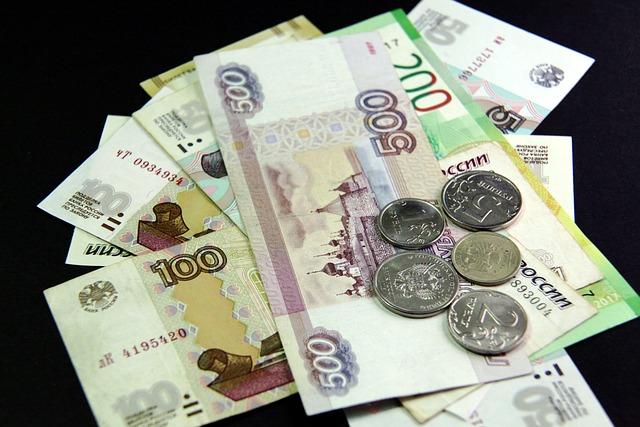In a decisive move reflecting its commitment to international diplomacy, Spain has recently affirmed its support for sanctions against individuals and entities deemed responsible for undermining the viability of the two-state solution between Israel and palestine. Foreign Minister Jos├® Manuel Albares emphasized the necessity of protecting the peaceful coexistence of both nations during discussions at a recent diplomatic meeting. As tensions in the region continue to escalate, Spain’s stance underscores the critical need for a renewed focus on dialog and negotiation in pursuit of lasting peace. This article explores the implications of SpainŌĆÖs position, the context behind these sanctions, and the broader geopolitical ramifications within the israeli-Palestinian conflict.
Spains Stance on the Two-State Solution and International Law
Spain has reaffirmed its commitment to the two-state solution as a viable path towards sustainable peace in the Israeli-Palestinian conflict. The Spanish Foreign Minister recently emphasized that any actions or policies undermining this frameworkŌĆösuch as the expansion of settlements,the demolition of Palestinian homes,and continued violenceŌĆöwill face potential sanctions.This approach highlights Spain’s alignment with international law and the consensus within the European Union that seeks to uphold the rights of both Israelis and Palestinians in their quest for statehood.
as a member of various international bodies, Spain plays a crucial role in advocating for principles enshrined in international law. Key elements of Spain’s position on this matter include:
- Support for UN resolutions: Advocating for resolutions that encapsulate the rights of both peoples.
- promotion of Dialogue: Encouraging direct negotiations between the parties involved without preconditions.
- Advocacy for Human Rights: Ensuring that humanitarian concerns are addressed, particularly in regard to vulnerable populations.
Through such measures, Spain aims to exert pressure on entities that violate the tenets of the two-state solution. In doing so, it hopes to foster a conducive surroundings for peace talks and ultimately contribute to a lasting resolution that respects both partiesŌĆÖ aspirations.

Implications of Sanctions for Political Actors in the Israeli-palestinian Conflict
The implementation of sanctions targeting political actors who undermine the two-state solution carries notable implications for both the immediate regional landscape and the broader international diplomatic efforts surrounding the Israeli-Palestinian conflict. sanctions can serve as a pivotal tool to signal disapproval of specific actions or policies that are seen as obstacles to peace negotiations. They may foster a shift in behavior among key political players, compelling them to reconsider their strategies in light of the economic and political costs associated with sanctions. In an environment where dialogue is frequently enough fraught with tension, such measures can potentially lead to a reevaluation of positions, encouraging a more constructive engagement in peace talks.
However, the ramifications of sanctions extend beyond mere policy adjustments; they can exacerbate existing divisions within the region. Political actors may respond in various ways, which could include reinforcing hardline stances or escalating conflict as a reaction to perceived external interference. The international community, particularly entities backing these sanctions, must carefully consider their timing and execution to avoid unintended consequences that could undermine stability. The potential for sanctions to alienate certain factions, provoke resentment, or fuel extremism underscores the complexity of the Israeli-Palestinian conflict. Therefore, a balanced approach that combines sanctions with diplomatic efforts will be crucial in navigating these turbulent waters.

Analyzing the Role of Spain within the European Unions Foreign Policy Framework
In recent years, Spain has emerged as a proactive member within the European union’s foreign policy arena, particularly in contexts concerning the Middle East. The Spanish government, under the leadership of its Foreign Minister, has emphasized a steadfast commitment to the two-state solution aimed at resolving the Israeli-Palestinian conflict.This stance is not only reflective of Spain’s past ties to the region but also aligns with the broader EU consensus that advocates for diplomatic solutions over unilateral actions. SpainŌĆÖs backing of sanctions against entities that threaten this diplomatic balance underscores its role in steering EU foreign policy towards discourse and cooperation rather than escalation and division.
To elaborate on Spain’s contributions, several key elements illustrate its influence within the EU framework which include:
- advocacy for Multilateralism: Spain champions collaborative international efforts to maintain peace and security in line with the EU’s policy direction.
- Commitment to Human Rights: The Spanish government emphasizes the protection of human rights as a core principle guiding its foreign policy initiatives.
- Facilitation of Dialogue: By promoting dialogue among conflicting parties, Spain aims to facilitate a constructive negotiation environment.
| Spain’s Role in EU Foreign Policy | Key Actions |
|---|---|
| Promotion of the Two-State Solution | Support sanctions against violators |
| Engagement with International Partners | Collaborative diplomacy initiatives |
| Investment in Regional stability | Financial aid for conflict resolution projects |

Recommendations for Engaging in Peaceful negotiations and Conflict Resolution
To cultivate a conducive environment for peaceful negotiations and conflict resolution, it is crucial for all involved parties to adhere to principles of mutual respect and understanding. By promoting open dialogue, stakeholders can better understand differing perspectives, which is essential in addressing the underlying issues of conflict. Some effective strategies include:
- Active Listening: Engage in listening to comprehend, not merely to respond.
- Empathy and Compassion: Recognize the emotional and cultural backgrounds of opposing parties.
- Collaborative Problem-Solving: Work together to identify common interests and devise joint solutions.
Additionally, establishing clear frameworks for negotiations can significantly enhance the process. Such frameworks should encompass various components that ensure a structured dialogue, as outlined in the table below:
| Component | Description |
|---|---|
| Ground Rules | Set up guidelines that define acceptable behavior and expectations. |
| Time Management | Allocate specific timeframes for discussions to maintain focus. |
| Documentation | Keep track of agreements and points discussed for clarity. |
These strategies and frameworks can foster a productive atmosphere for negotiations,promoting long-lasting peace and resolution in conflicts.

The Impact of Sanctions on Future Diplomatic Relations in the Middle East
The recent decision by Spain to impose sanctions against individuals or entities undermining the two-state solution reflects a growing sentiment among nations that view dialogue and diplomacy as essential to lasting peace in the Middle East. These sanctions symbolize a commitment to a multilateral approach in addressing longstanding conflicts, where international cooperation can mitigate aggressive actions. Spain’s endorsement of these measures resonates with other European and international entities advocating for a balanced approach to the Israeli-Palestinian conflict.The assertion from the Spanish Foreign Minister underscores a collective resolve to thwart actions that derail potential negotiations, bringing additional pressure to bear on stakeholders who might act unilaterally.
In assessing the potential repercussions of such sanctions, several factors emerge that could shape future diplomatic relations in the region. Key considerations include:
- Shift in Alliances: Nations may align with or against sanctioning entities based on political, economic, and social interests, impacting regional dynamics.
- Increased Polarization: Sanctions could exacerbate existing divisions, leading to a hardening of positions among various factions.
- Stimulated Negotiation Efforts: Conversely, sanctions may incentivize some actors to engage in dialogue to alleviate economic pressures.
As stakeholders adjust their strategies in response to these measures, the balancing act will be crucial for not only maintaining stability but also ensuring that diplomatic channels remain open for constructive dialogue. A careful approach now can pave the way for potentially redefining the framework for negotiations and enhancing cooperative efforts among Middle Eastern states.

to sum up
Spain’s firm stance in support of sanctions against entities undermining the viability of a two-state solution underlines its commitment to international diplomacy and peace in the Middle East. With the situation remaining precarious, the Spanish Foreign Minister’s remarks emphasize the importance of collaborative efforts in enforcing accountability and promoting constructive dialogue. As the international community continues to grapple with various challenges in the region, Spain’s active engagement highlights the critical need for sustained efforts to achieve a lasting and just resolution to the Israeli-Palestinian conflict. Moving forward, it will be essential for countries around the world to join forces in upholding principles of justice and coexistence, ensuring that the dream of lasting peace is not only envisioned but actively pursued.
















